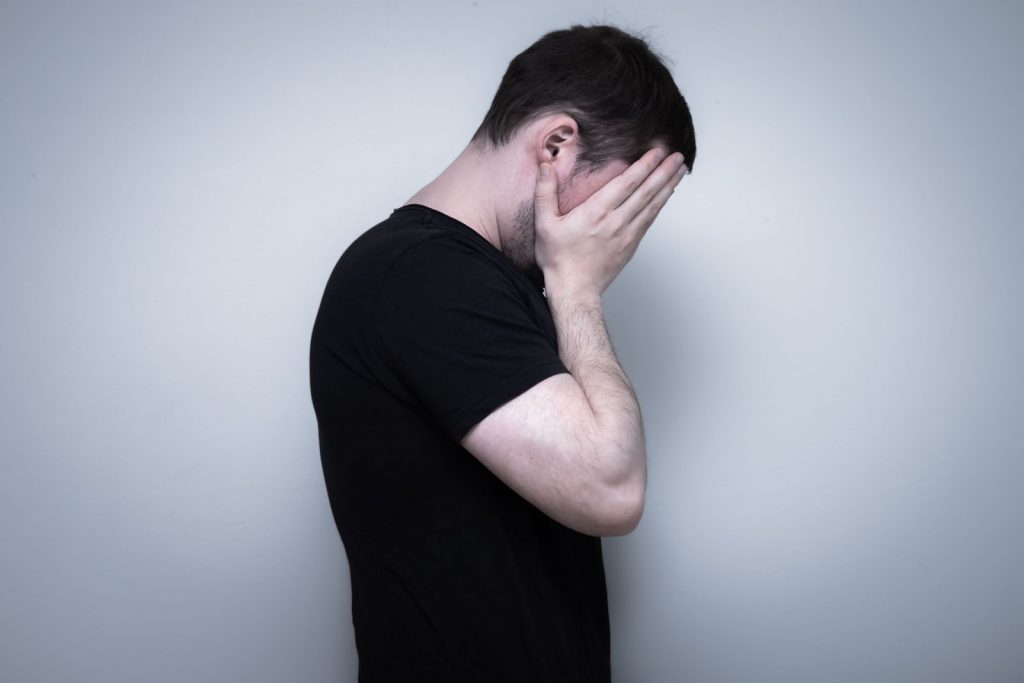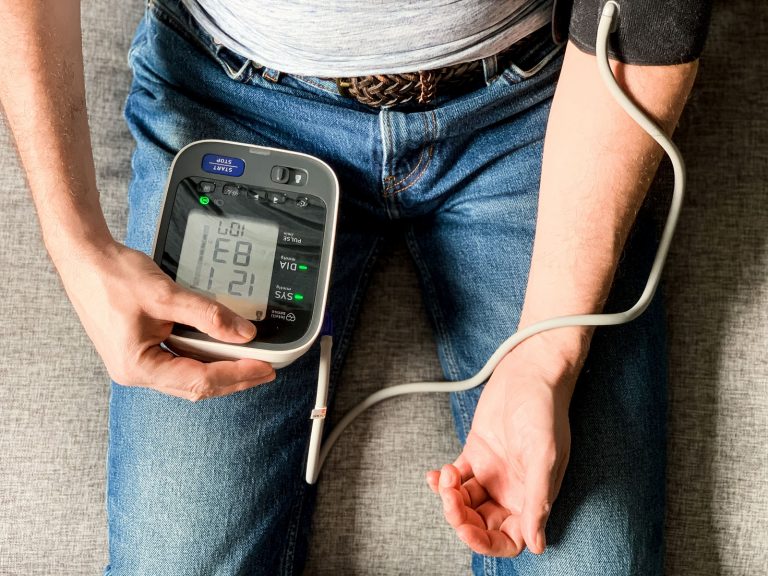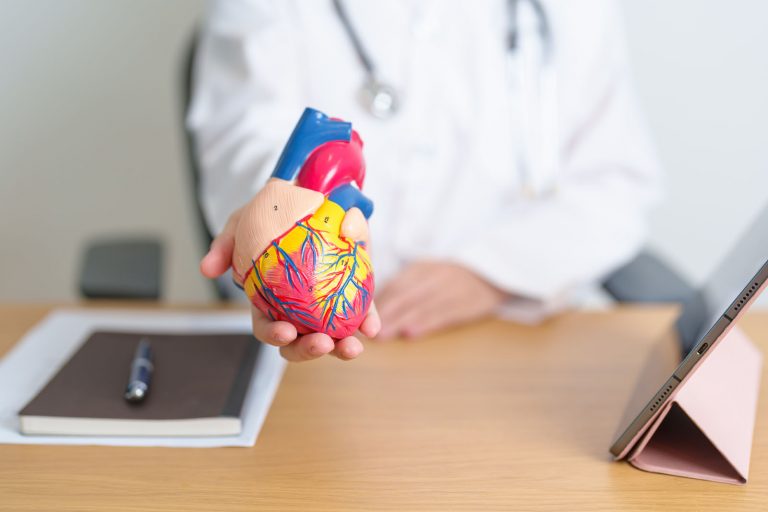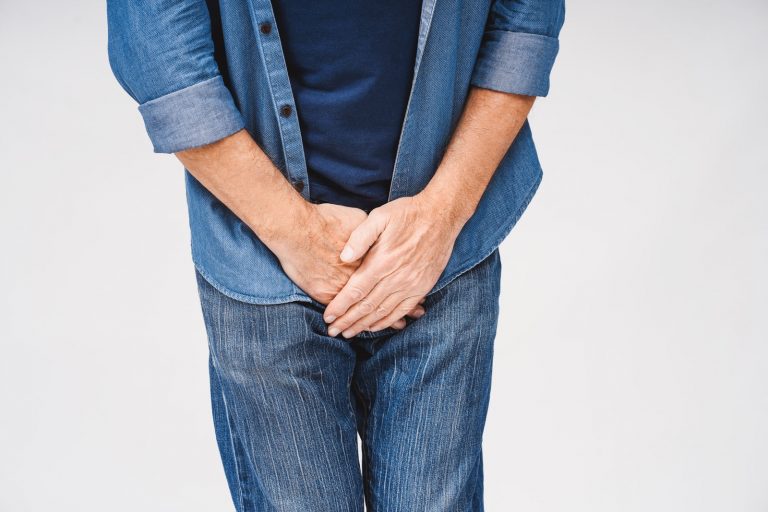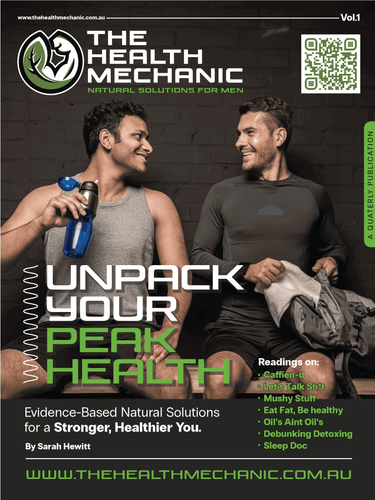Discover effective natural treatment for depression. This guide offers insights
to help you manage and improve your mental health and reduce depression.
Natural Treatment for Depression: Men's Mental Health
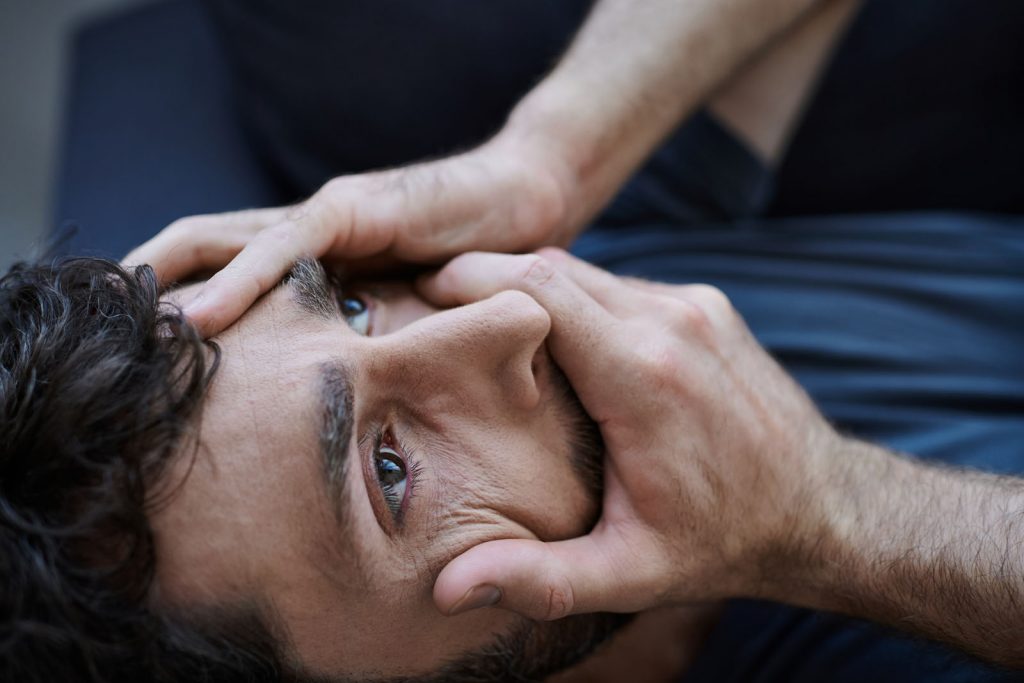
Key Takeaways
- Depression is a significant yet often overlooked issue among Australian men
- Traditional pharmaceutical treatments exist, but many men are now turning to natural and integrative approaches.
- Functional medicine considers the root causes of depression, including lifestyle, nutrition, and biochemical factors.
- Natural therapies: including herbal medicine, targeted supplementation, and amino acid therapy, offer promising support for mental well-being.
- Understanding depression and seeking help is crucial- support is available, and effective strategies exist beyond medication alone.
Introduction
With the pressures of life, it’s not suprising that managing mental health is a burden for many guys. A large percentage of my male patients are under immense stress and pressure that they hardly acknowledge- they just keep pushing through. But what can actually be done to support mental health and depression? Traditional medicine offers us a variety of pharmaceutical drugs, but more and more guys are now looking at natural medicine for help with depression and its symptoms. This guide seeks to give men some evidence-based information to support better mental health.
Understanding Depression in Australian Men
Depression will affect 1 in 8 men in Australia during their lifetime. That’s a pretty big number. And as I mentioned earlier, may guys don’t reach out for help, or even recognise that they need to. Depression and mental health struggles can be situational and short, or a long-term issue, and there are things we can do in both scenarios. When understanding depression, we need to consider the impact of social norms and the traditional ideas of masculinity that might be holding guys back from looking for mental health support. Often, men think that asking for help is a show of weakness.
There is a need for specific men’s health initiatives in order to make mental health services easier to reach for those in need. At The Health Mechanic, we try to create an environment where guys can feel comfortable asking for help and openly discussing their mental health and what can be done to support it.
Types of Depression
Depression comes in different shapes and sizes. Major depressive disorder is one of the most common types. It includes ongoing feelings of sadness, hopelessness, and little interest in activities that used to be fun. Seasonal affective disorder (SAD) is another kind. It usually happens during autumn and winter when daylight hours are fewer.
Bipolar disorder is also called manic depression. This condition involves swings between extreme happiness (mania) and very low moods (depression). Depression can also be situational, due to loss of a loved one, financial pressure, ongoing stress or even chronic pain.
Potential Causes of Depression
So what causes depression? There is no single cause. Genes, life experiences, and biochemical factors (including diet) all play a part in mens mental health. Substance use and abuse is a common problem that can exacerbate depression, even though it seems to provide relief at the time.

What Are Treatments For Depression?
Go-to treatments usually include pyschology and pharmaceutical medication. These methods can provide people with relief, but they also have limitations because of the limited amount of factors they address. Counselling can be great, but if you have a nutritional deficiency of amino acids required to produce neurotransmitters, you won’t be getting the most out of it!
When treating depression, we need to consider the all the underlying factors contributing to it’s development. It’s also important to consider how different people respond, and any side effects.
Pharmaceutical Options
Antidepressant medications alter chemicals in the brain. There are multiple types of antidepressants including:
- Selective Serotonin Reuptake Inhibitors (SSRIs)
- Serotonin-Norepinephrine Reuptake Inhibitors (SNRIs)
- Tricyclic & Tetracyclic Antidepressants
- Monoamine Oxidase Inhibitors (MAOIs)
- Serotonin Antagonists and Reuptake Inhibitors (SARIs)
- Norepinephrine-Dopamine Reuptake Inhibitors (NDRIs)
The right antidepressant is not the same for everyone. Doctors need to carefully consider personal medical history, possible drug interactions and the type and severity of depression. Finding the right prescription antidepressant and the correct dose usually takes time and effort under a doctor’s help. Pharmaceutical medical treatments can provide relief from depressive symptoms, but there still may be contributing factors to your low mod that are not being addressed.
Side Effects of Antidepressants
While pharmaceutical medication for depression can be useful, adverse effects are common and some of them overlooked. This is a huge issue, as often patients wil be on these medciations for extensive periods of time, if not life. Side effects of anti-depressants can be mild like poor sleep, weight gain, feeling sick or having headaches, and having a dry mouth. Seeing your doctor to make adjustments to treatment plans may be necessary to fit individual reactions.
Finding the right medication can take a long time and become frustrating when you are feeling lousy. But it is important it is for patients to maintain open communication with their healthcare providers with any side effects or concerns they may have.
Psychological Therapy
Psychological therapy can play a key role in managing depression. Therapy can help men recognise thoughts, feelings and behaviours and reconcile or improve them. By addressing emotions and finding healthy ways to cope with them, men may feel like they are in a better and more positive position to face life.
There are many different types of pyschological therapy, and it’s important to keep in mind that the “best” treatment can differ for each person. An example is cognitive behavioural therapy (CBT). Cognitive behavioural therapy has been proven effective in reducing depression. It helps people determine and change harmful thought patterns and behaviours through techniques such as journalling.
The Functional Medicine Approach to Depression
Functional medicine takes a whole-person approach to depression. We dig deeper in order to indentify and address the root causes of mood imbance, rather than just managing symptoms. We consider every guys full medical, lifestyle, and environmental history in order to develop targeted strategies for long-term mental well-being. These might include nutrition plans, lifestyle modifications, or supplementation.
We also believe strongly in collaboration with your doctors and other health practitioners. While conventional doctors may not be trained in herbal or nutritional therapies, those open to working with us and taking an integrative approach to depression can help patients achieve better outcomes.
Natural Remedies for Depression
Depression looks different for every man. It may come with apathy, fatigue, loss of libido or grief. Fatigue often stems from issues like insomnia, insufficient nutrients, or ongoing stress. Libido loss can also occur when someone is feeling depressed. The really great thing about herbs and nutrients, is that a blend can be tailored for your specific symptom picture- whether that be to calm the nervous system, balance your mood, improve sleep latency or maintenance, or boost your sex-drive.
Thymoleptic or antidepressant herbs can help improve mood by modulating neurotransmitters in the brain. However, it is very important to talk with a qualified healthcare professional rather than just self-prescribing based on Dr Google. A qualified professional can help you find safe dosages, identify if there are any interactions with other medications, and make sure you aren’t missing something significant in your self diagnosis.
So let’s dive into to some of the natural options we use which can support mood.
Natural Alternatives for Antidepressants: Hypericum
A popular herbal supplement is Hypericum perforatum (or St. John’s Wort), which is known for its antidepressant effects. Hypericum is thought to alleviate depression by inhbiting the reabsorption of the neurotransmitters serotonin, norepinephrine, and dopamine which leads to improved mood. Research on Hypericum suggests that it can be beneficial for mild to moderate depression.
Note: St. John’s Wort may cause problems if taken with certain medicines, including some antidepressants.
Saffron’s Efficacy and Research Findings
Saffron or Crocus sativus has many health benefits, especially for the treatment of depression. The active compounds in saffron (crocin and safranal) influence neurotransmitter systems in the brain. A trial compared saffron to conventional anti-depressants and found the herb to be as effective as the medications when treating mild to moderate depression. A systematic review found saffron significantly more effective than placebo for major depressive disorder.
Depression Treatment Options: Damiana and Oat Seed
Damiana turnera and Avena sativa seed are other herbal options for depression. Damiana has mild antidepressant effects due to its ability to increase the levels of serotonin and dopamine. It is particularly suited for mild to moderate depression, especially when symptoms include libido loss, anxiety and stress.
Avena sativa seed also enhances the activity of serotonin and dopamine. I prescribe this herbs for depression which is accompanied by fatigue and mental exhaustion, beacuse this herb is also known to support cognitive function and energy levels.
Remember: always consult a qualified healthcare professional before taking herbal supplements. They can help you understand any possible side effects, drug interactions, and get the dosages right.
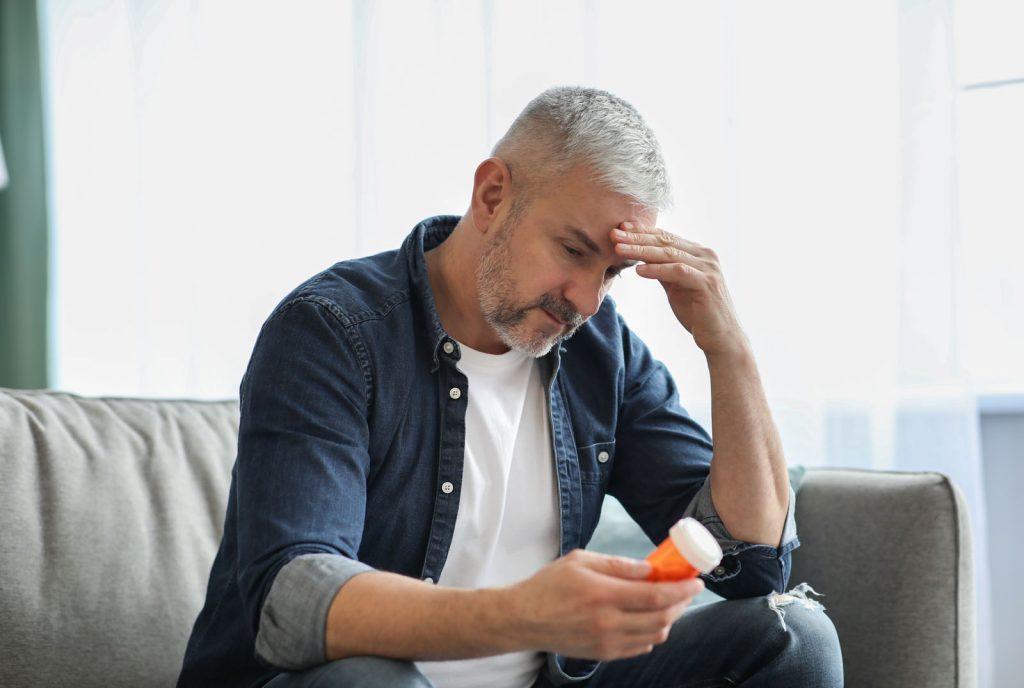
What Supplements Are Good For Depression: Nutrients
Nutritional insufficiency can be a cause and/or effect of depression. Studies show that good nutrition is crucial for mental well-being, especially for those dealing with depression.
Vitamins, minerals, and fatty acids are important for making neurotransmitters and helping nerve cells communicate. We get important nutrients like fatty acids, amino acids, vitamins, and minerals from our food. These nutrients play a key role in making neurotransmitters, which affects our emotional health. Addressing any gaps in nutrition with dietary supplements can really help support low moods and depression.
Research points towards several key nutrients that positively impact brain health and mood regulation. Ensuring adequate intake of these nutrients through diet or supplementation can contribute towards alleviating depression symptoms.
Nutrient | Role in Mental Health |
Omega-3 Fatty Acids | Essential for brain structure and function, influencing mood, cognition, and inflammation. |
Vitamin D | Plays a role in neurotransmitter synthesis and brain cell signaling; deficiency linked to increased risk of depression. |
B Vitamins | Involved in energy production, neurotransmitter synthesis, impacts mood and cognition. |
Supports healthy nerve function, stress response, and neurotransmitter |
Magnesium | balance. |
Zinc | Contributes to brain development and function, influencing mood regulation and cognitive processes. |
However, taking supplements should only be part of a well-balanced diet. It is important to consult with a healthcare professional. Taking unnecessary supplements can cause as many problems as nutritional deficiency!
Natural Treatment For Depression: Amino Acid Therapy
Amino acid therapy is a new area in mental health that focuses on amino acids. These amino acids help form neurotransmitters, which are important for mood, sleep, focus, and motivation. By making sure the body has enough of these building blocks, amino acid therapy aims to bring back balance and boost overall well-being.
Targeted amino acid therapy can help with depression by fixing shortages in important neurotransmitter precursors like tryptophan, tyrosine, and phenylalanine. Additionally, some amino acids, such as glycine and taurine, have calming effects on the nervous system. This can help with anxiety and promote relaxation, both of which can impact people dealing with depression.
When combined with changes in lifestyle and other treatments, amino acid therapy can be helpful.
Transitioning From Pharmaceutical Antidepressants
Transitioning away from antidepressant medications is a big choice. It needs careful thought and expert help. Never stop medication all at once without talking to a healthcare professional- doing so can lead to withdrawal symptoms and could make depression worse.
If you want to try natural options, please work collaberatively with your doctor and qualified functional medicine expert. They can help you slowly and safely lower your medication while you also make lifestyle changes and dietary adjustments to ensure the best possible outcome.
Lifestyle Adjustments and Supportive Practices
How we live plays an important role in mental health. We need to look at the whole picture contributing to our state of mind and brain function, which includes the physical, emotional, and social parts of our lives.
By adding regular physical activity to our routines, focusing on getting enough sleep, practicing mindfulness, and building strong social connections, we can more effectively manage depression.
Exercise and Physical Activity
The benefits of exercise go beyond physical health. Exercise helps release endorphins, which are natural mood boosters. Research has shown exercise is effective in both preventing and treating depression. Regular physical activity also helps improve sleep and increases energy.
However, it can be difficult to start an exercise habit when struggling with depression, as lack of energy and low mood may make it challenging to get active. Find a coach to support you, or an activity you enjoy, like walking, muay thai or swimming, and making it a habit could be a good first step towards improving your mental health.
Mindfulness and Meditation
Mindfulness, meditation, and yoga are becoming popular for managing depression and improving mental health. Mindfulness helps us focus on the present moment. This awareness helps us build better coping skills for dealing with negative thinking which often comes with depression.Studies show that mindfulness meditation can lower stress and improve mood.
Social Connections and Emotional Support
Making social connections and asking for support can make a significant difference to mood. When you feel alone, your symptoms of depression can be exacerbated. Reaching out to friends and engaging in enjoyable activities can lift mood and improve your perspective. The Black Dog Institute has a link of support services in every state of Australia, which you can access here.

Conclusion
Managing depression isn’t about a one-size-fits-all solution- it’s about finding the right combination of support, whether through psychology, pharmaceuticals, lifestyle adjustments, or natural medicine. Too many men suffer in silence, believing they need to push through on their own. But real strength comes from recognising when help is needed and taking action. By exploring functional medicine, targeted nutrition, and herbal support, men can empower themselves with tools to improve mental health naturally. If you or someone you know is struggling, reaching out to a trusted healthcare provider is the first step toward managing depression effectively.
Frequently Asked Questions
What are the first steps in seeking natural treatment for depression?
Consult with a healthcare professional to discuss your symptoms and explore suitable options. Incorporating lifestyle changes such as regular exercise, a balanced diet, and mindfulness practices to support mental health and complement natural remedies. Only discuss natural treatment options with a qualified provider.
Can natural treatments replace pharmaceuticals?
Natural treatments can help alongside regular medicines but should not take their place without advice from a professional. If someone has severe depression, they may need to take antidepressant medication. It’s important to talk to your doctor about any changes to your treatment.
How do I find a functional medicine practitioner in Australia?
To find a functional medicine practitioner in Australia, you can ask your doctor for recommendations. You can also look online.
Are there any risks associated with herbal treatments for depression?
Yes, herbal treatments can have risks including side effects or interaction with other medications. Do your research first. Talk to a qualified healthcare professional before trying any remedies for your symptoms. Good health information is important for safe use.
How can lifestyle changes impact depression symptoms?
Regular exercise and a balanced diet help lower depression symptoms. Simple changes, such as taking daily walks, eating more fruits and vegetables, and practicing mindfulness, can boost your mood. Small steps can lead to better overall well-being.



